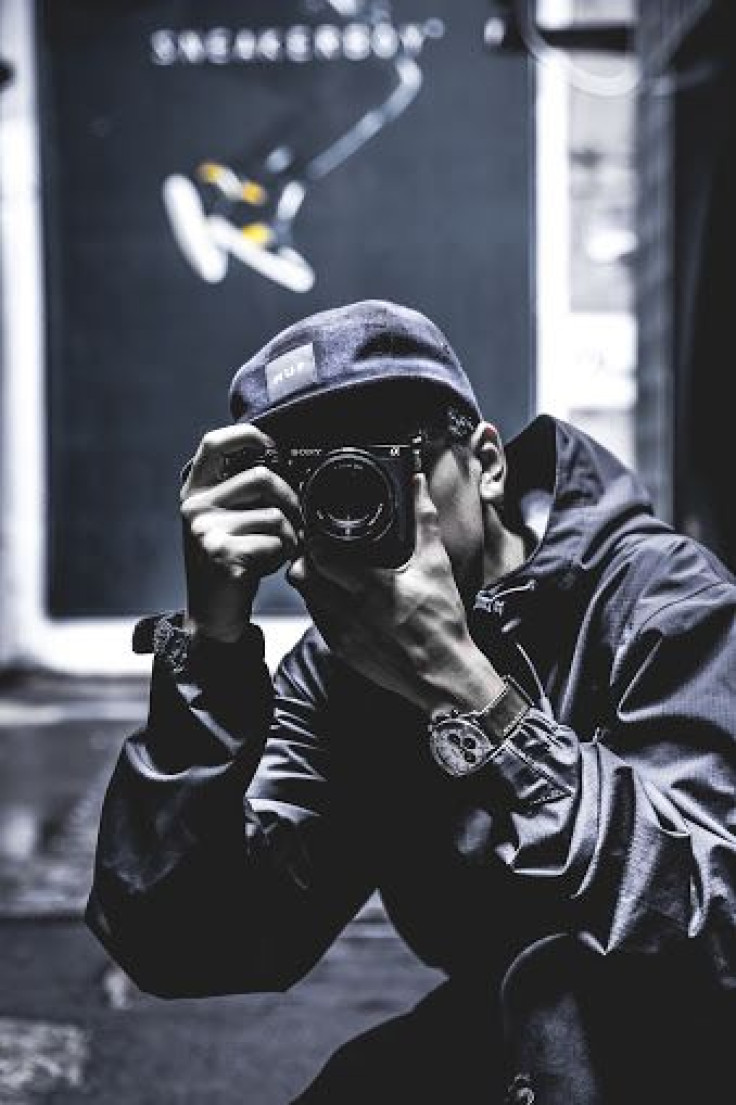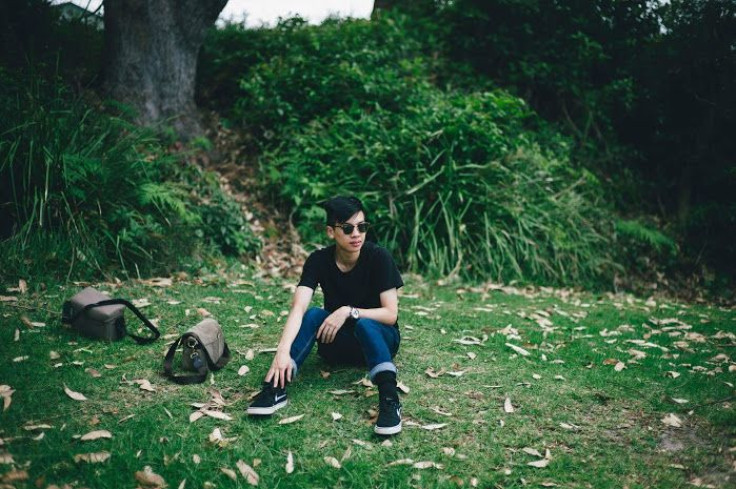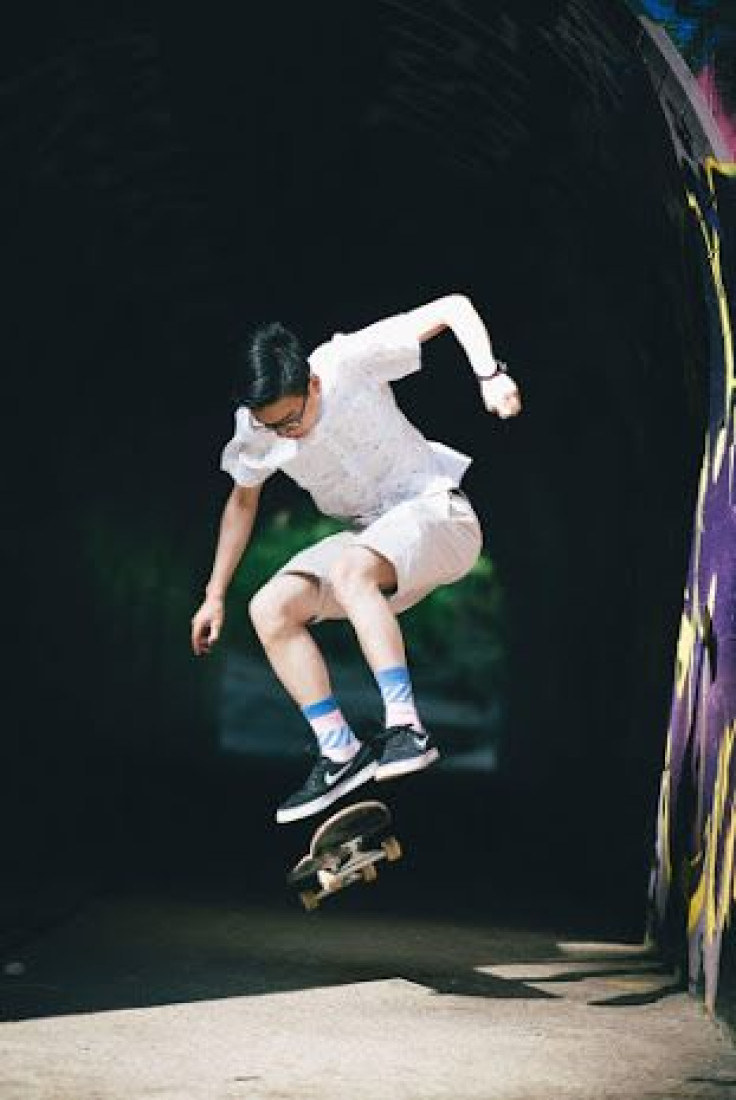Faces Of Our Economy: Freelance photographer who uses Instagram to drive demand for consumer products says payment by ‘exposure’ isn’t enough

The Economy is a big word that gets thrown around by politicians and professionals, businessmen and social workers, lecturers and students. It is usually associated with words like demand and supply, boom and bust, trade, distribution and production, but we at IBTimes Australia believe there’s more to our economy than just statistics and percentages. Our economy is made up of success stories, failures and everything in between, all of which would not exist without people.
Faces of our Economy is a campaign that seeks to dive deeper into the makeup of the Australian economy - Australians from all walks of life, and at different stages of their journey.
--------------------------------------------------------------------------------------------------------------------------
An estimated 32 percent of Australia’s workforce took part in the country’s freelance economy in 2015. That’s 4.1 billion people or one in three Aussies, according to a study by Edelman Berland commissioned by freelance jobs marketplace Upwork.
Interestingly, the study found that over 50 percent of respondents said they voluntarily shifted to freelance work, instead of being ‘forced’ into it, while just over half said they were earning more than they did in traditional employment.
While this may be the case for some freelancers, it doesn’t always hold true for everyone participating in the ‘hidden economy’. Freelance photographer Andrew Hoang is just one of many young Australians who are frustrated by the lack of competitive payment for their craft.

At first, this doesn’t seem to be a huge problem for the 21-year-old University of Technology Sydney Business and IT student. Hoang manages events for the university’s photography society and is a social media coordinator and sales assistant at Georges Cameras, running campaigns, creating content, advertising and driving marketing for the camera retailer.
He also tries to squeeze in time as a freelance photographer in whatever spare hours he has, publishing his work on visuals-friendly platform, Instagram, under the name @streetflicker.
“Instagram is super important to me. It is my medium for engaging with photographers and customers. It is the only reliable photography platform at the moment,” Hoang says.

“There are so many people using it constantly everyday, and it is a channel that I can get the most reach out of. For me personally, I love that I can share my work and see other people’s to constantly get inspired to create good content.”
However, this accessibility into the world of good pictorial content is also a challenge for this active online user, who believes an ongoing issue in the photography industry is that people do not feel obliged to pay for good photos. The world of iPhones and easy-to-use technological devices makes it much harder for people who do want to get into the profession to attract clients and make a living out of their passion.
“People don't seem to appreciate photography as much as they used to any more, I feel because photography is so accessible now, essentially anyone can take a photograph,” Hoang says.
“People don't feel obligated to pay for photography, they pay by ‘exposure’ and I absolutely hate that.
“You put out so much of your time and effort, integrating your art to satisfy people’s needs, and they pay you by spreading your name, which is definitely great, but it's kind of a bummer when you want to make a living out of it. Why can't photographers have an income like everyone else? Exposure doesn't pay the bills!”
Cue the sceptics who think that Insta-photos and photography are not ‘real jobs’. So we posed the question to Hoang: how do photography and Instagram add value to the economy?
“When I'm creating content for my job, I feel that I am contributing to creating demand and buzz towards a particular product. When I post on the @georgescameras page it is literally gear porn, the whole Instagram page is of new and upcoming products. I try to take super creative shots, to attract and provide [viewers] with information in the caption that is valuable to them as a photographer, or as a first time buyer,” he says.
“By creating this positive relationship, I believe a lot more people are inclined to purchase in store, helping boost Australia's local retailer economy. Preventing people from purchasing overseas not only benefits them, but benefits us as they'll keep coming back for future purchases, and we love seeing each and every customer walk out happy with a camera, and come back to buy more accessories or better yet more cameras!”

Hoang also points out that the photography retail industry, just like other retail sectors, rides through the up and downturns of the economy.
“The Australian dollar is so weak [at the moment], and that is a big issue. A lot more people are purchasing from China or USA because it is cheaper. The photography retail industry is not suffering yet, but it could be in a much better place than it is now.”
So for the freelance photographer who only picked up the camera because he had fractured his ankle really badly two years ago after a skateboarding accident, the world - both virtual and physical - is his oyster. It’s also a good insight into a new generation of workers who aren’t afraid to turn their passion or hobby into a job.

“[Juggling Uni and work] always keeps me on my toes. When I study, I try to give myself a one hour break doing photography related items, whether it be going out to shoot, editing photos or looking at content on Instagram, just to keep myself sane!”
Hoang admits planning too far ahead is futile -- “I could break my arms and not be able to take photos anymore!” -- but he says embracing your passion is important.
“You don't know what you're going to be doing in the next year, month or even day. If you're into something, immerse yourself into it, live it, breathe it and love it. At the end of the day your passion will drive you and opportunities will come to you.
“Most importantly be yourself, don't try to take a successful formula and copy it. Nobody wants that, and neither will you over time.”
Wise words from a 21-year-old.






